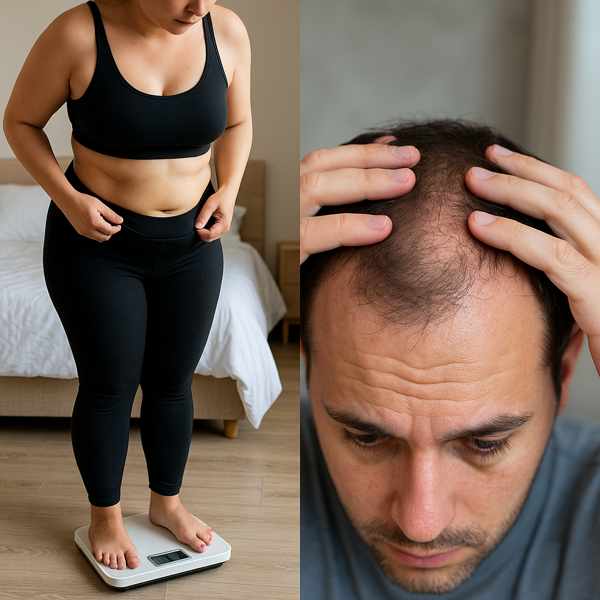Hair Shedding and Weight Loss: Causes and Solutions

Losing weight is often a positive step toward better health, but it can sometimes come with surprising side effects — like hair loss.
Understanding why this happens and how to protect your hair can help you reach your goals without compromising your confidence.
Why Hair Loss Happens During Weight Loss
Hair loss during weight loss is usually a result of physical stress or nutritional deficiencies.
Common causes include:
- Nutrient deficiencies
- Body enters stress mode
- Hormonal imbalances
- The body reacts to sudden changes
What Type of Hair Loss Is It?
Most hair loss related to weight loss is called telogen effluvium.
Key facts:
- There’s a delay between cause and effect
- No bald patches, just thinning
- It often resolves on its own
Eat for Hair, Not Just Fat Loss
If you're trying to lose weight, be sure not to miss these nutrients:
- Essential for hair structure and growth
- Iron
- Biotin and other B vitamins
- Zinc
- Vitamin D
Skipping meals or using crash diets can easily lead to deficiencies that trigger hair loss.
Yes — With the Right Strategy
You don’t have to choose between losing weight and keeping your hair.
Tips include:
- Lose weight gradually
- Eat a nutrient-rich diet
- Especially during calorie restriction
- Both affect hormones and hair health
- Stay hydrated
What to Do If You’re Already Losing Hair
If you notice excessive shedding:
- Don’t panic
- Get bloodwork done
- Replenish what’s missing
- Try gentle hair care
- Hair regrowth takes a few months
Should You Talk to a Doctor?
If hair loss continues beyond 6 months or worsens significantly, weight loss and hair loss treatment it's a good idea to consult a healthcare provider.
- A common cause of both weight and hair changes
- Autoimmune conditions
- Need professional correction
Conclusion
Weight loss and hair loss can be connected, but they don’t have to be permanent partners.
Prioritize nourishment, patience, and consistency, and your body will thank you — from head to toe.